There’s just something about watching elite marathon runners move that inspires even those of us in the middle and back of the pack! If you’ve ever wondered what are the fastest marathon times, you aren’t alone. We’re going to break them down with some extra fun facts as well.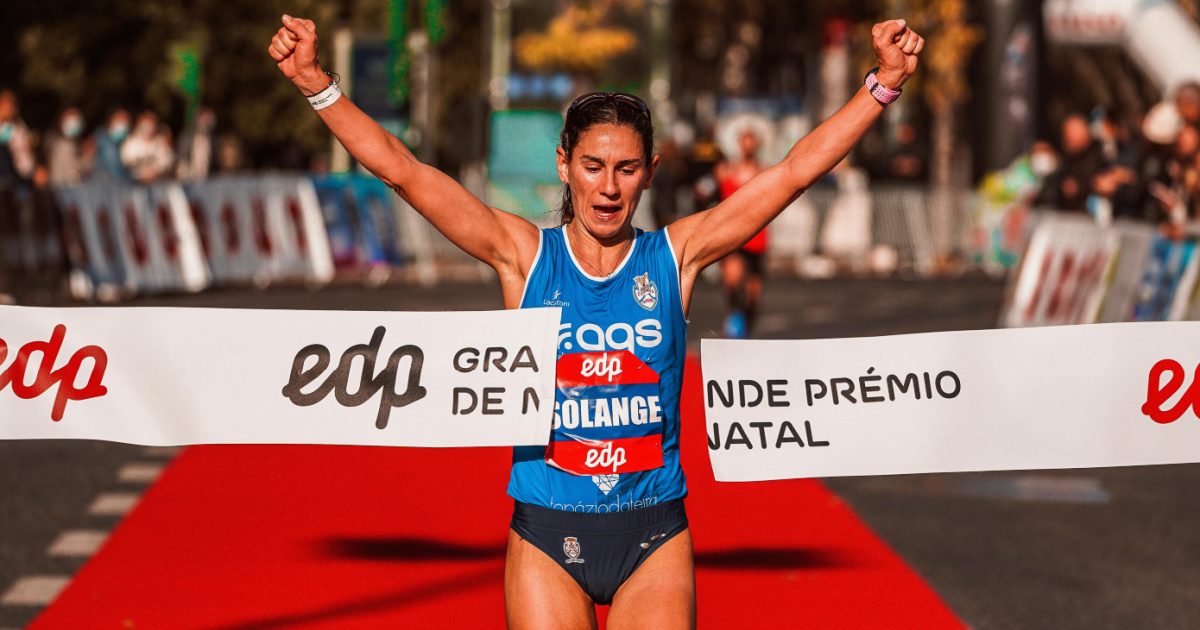 Before we dive in to the times, it’s pretty important to know why NOT EVERY race can count towards an official world record. This might be why you hear about faster times occasionally, but they aren’t listed. It’s pretty rare for someone to achieve it outside of a sanctioned race because they know the rules too.
Before we dive in to the times, it’s pretty important to know why NOT EVERY race can count towards an official world record. This might be why you hear about faster times occasionally, but they aren’t listed. It’s pretty rare for someone to achieve it outside of a sanctioned race because they know the rules too.
How To Achieve An Official Marathon World Record
You had to be living under a running rock if you missed Breaking 2 with Eulid Kipchoge. Which of course everyone assumes must be the world record, but it’s not!
While he did break 2 hours in the marathon, Eliud Kipchoge’s well orchestrated Nike event didn’t meet all of the requirements to officially count as a World Record.
The World Athletics determined that because of rotating pacers, drinks being handled to him throughout, and other factors, the race was more of a time trial than a race.
Only certain races count as qualifiers for World Records. They have a whole list of standards like “the start and finish points on the course, measured along a straight line between them, shall not be further apart than 50% of the race distance,” and where too much of the course doesn’t flow downhill.
Fastest Men’s Marathon Times
The fastest overall men’s time that meets these requirements Kelvin Kiptum of Kenya at the Chicago Marathon in 2023. He finished in 2:00:35.
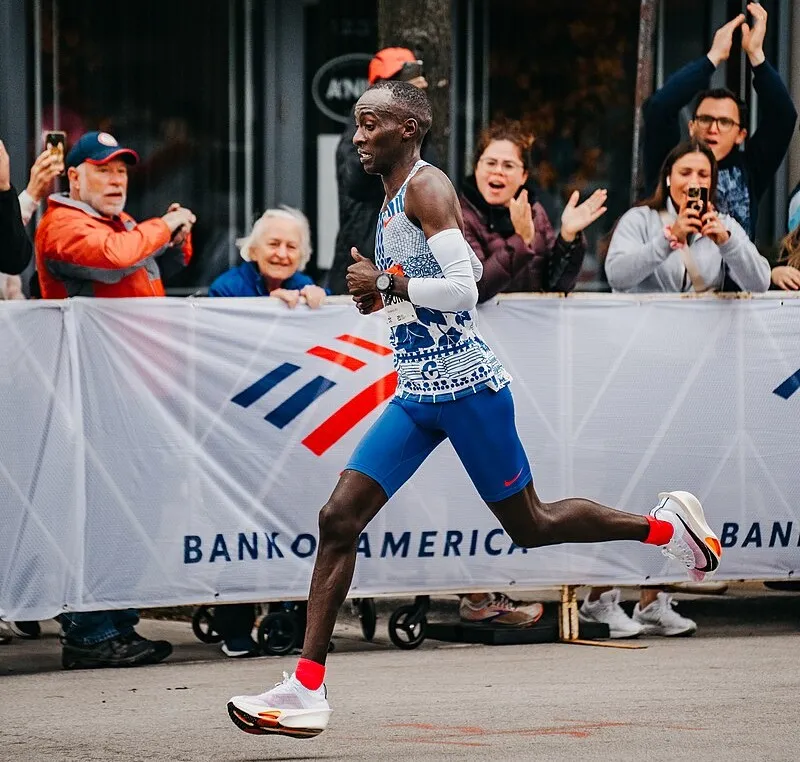
Here are the times that round out the Top 10:
#2. Eliud Kipchoge (Kenya), Berlin 2022, 2:01:09
#3. Kelvin Kiptum (Kenya), London 2023, 2:01:25
#4. Eliud Kipchoge (Kenya), Berlin 2018, 2:01:39
#5. Kenenisa Bekele (Ethiopia), Berlin 2019, 2:01:41
#6. Sisay Lemma (Ethiopia), Valencia 2023, 2:01:48
#7. Kelvin Kiptum (Kenya), Valencia 2022, 2:01:53
#8. Sabastian Sawe (Kenya), Valencia 2024, 2:02:05
#9. Benson Kipruto (Kenya), Tokyo 2024, 2:02:16
#10. Sabastian Sawe (Kenya), London 2025, 2:02:27
Do you see a trend here? Chicago and other World Marathon Majors attract top tier elites for the large prize purse and the flat courses add to the potential for record breaking times.
In fact, London and Chicago both encourage pacers to increase the changes of records. While Boston and NYC marathons do not allow pacers!
The rules around pacers vary by race. Sometimes they will complete the course, but finish behind the elites having slowed down and other times they have a set point where all pacers leave the course.
Fastest Women’s Marathon Time
The fastest overall women’s time was run by Ruth Chepngetich of Kenya at the Chicago Marathon in 2024. She finished in 2:09:56.
We know that women’s times are falling much faster than the men’s right now. So expect for this list to continue changing rapidly in the coming years.
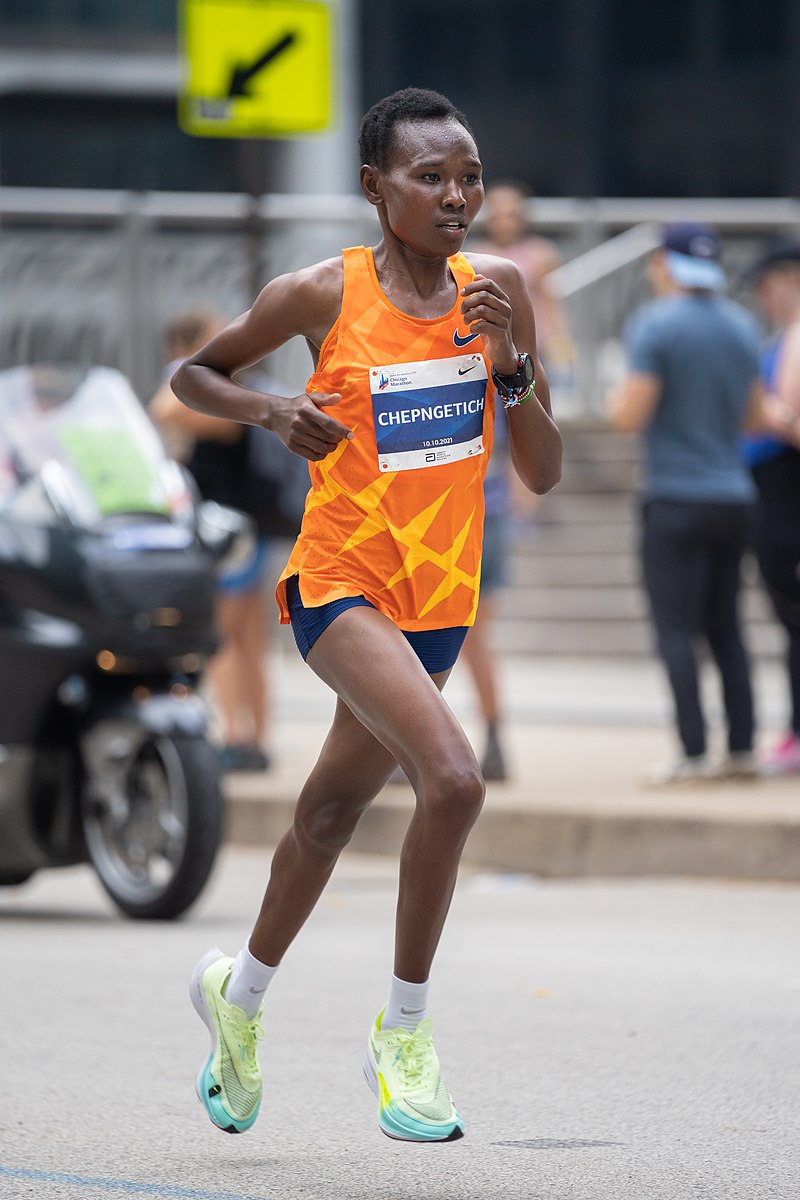
Here are the rest of the Top 10 times:
#2. Tigst Assefa (Ethiopia), Berlin 2023, 2:11:53
#3. Sifan Hassan (Netherlands), Chicago 2023, 2:13:44
#4. Brigid Kosgei (Kenya), Chicago 2019, 2:14:04
#5. Ruth Chepngetich (Kenya), Chicago 2022), 2:14:18
#6. Amane Beriso Shankule (Ethiopia), Valencia 2022, 2:14:58
#7. Paula Radcliffe (Great Britain), London 2023), 2:15:25
#8. Tigst Assefa (Ethiopia), Berlin 2022, 2:15:37
#9. Ruth Chepngetich (Kenya), Chicago 2023, 2:15:37
#10. Tigst Assefa (Ethiopia), London 2025, 2:15:50
Women-Only Fastest Marathon Times
There is a separate category for races run with only women, where the women either start separately and/or aren’t paced alongside men. This might sound arbitrary, but there is a school of thought that the male pacers change things because many have slightly faster times.
The record holder there is Tigst Assefa of Ethiopia, who accomplished a time of 2:15:50 at the 2025 London Marathon. Interesting to note that they did have pacemakers through the 25KM mark.
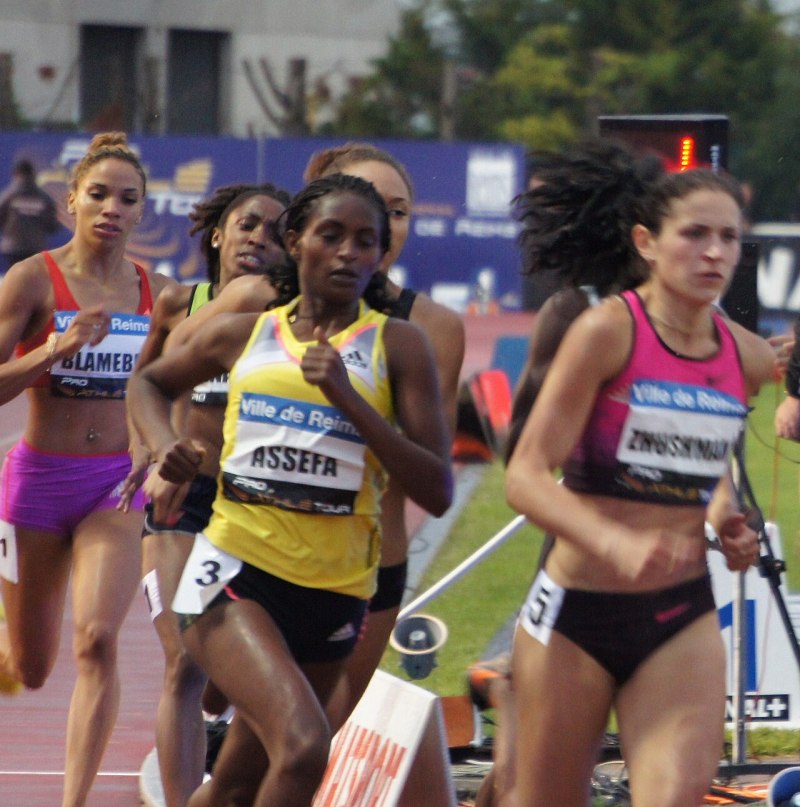
What It Takes To Run An Elite Marathon Time
Running an elite marathon time – below 2:10 for men and 2:25 for women – requires physical, mental, and lifestyle dedication.
Genetics aren’t something you can control, but they do play a small role. The Tread Lightly Running Podcast took a deep dive down this rabbit hole to share with you exactly how much genetics change things (hint it’s way less than we all want to believe.)
While these elite athletes do tend to have a high VO₂ max (70–85+ ml/kg/min) and a light body frame, that’s just one piece of the puzzle. They also have extremely good running economy from YEARS of training. Most of them have been running decades before throwing down a marathon, let alone a world record.
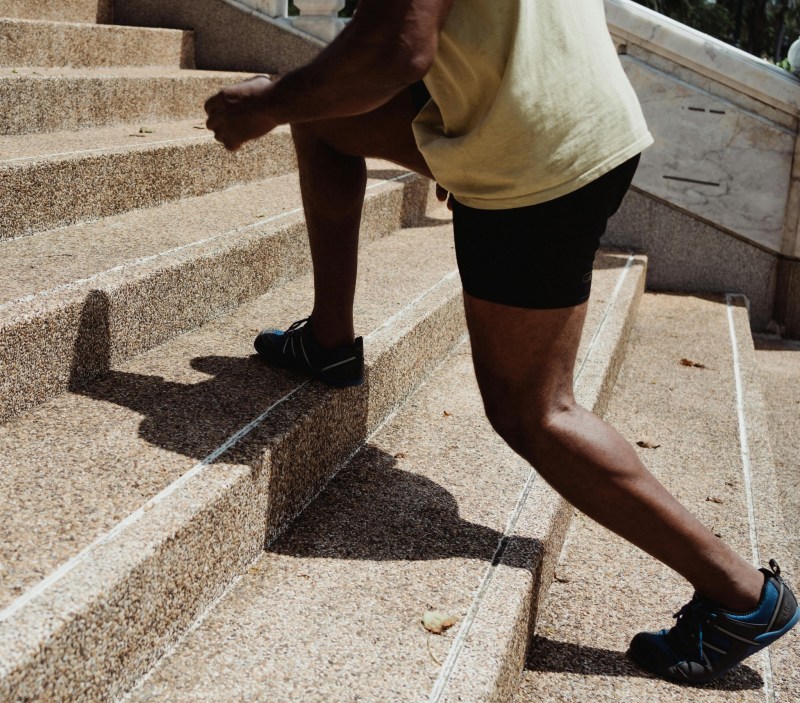 Elite runners spend years building aerobic endurance and participating in lactate threshold training that allows them to sustain high speeds. You can train your body to run at 90-95% of VO₂ max for extended periods.
Elite runners spend years building aerobic endurance and participating in lactate threshold training that allows them to sustain high speeds. You can train your body to run at 90-95% of VO₂ max for extended periods.
Elite runners also run half-marathons in less than an hour, and are able to meet a 10k speed of 28 minutes (men) and 31 minutes (women).
Mental strength training also plays a role, as elite runners have to be able to tolerate discomfort for long periods, be able to have the focus and discipline to push through years of training, and have the resilience to handle setbacks.
Lifestyle factors, like good nutrition and the support of a coach and peer group, also play a role.
There you have it a quick look at some of the current top marathon times.
Looking for other running info?
- When Was Running Invented?
- What’s A Good Marathon Time?
- 65 Running Facts You Didn’t Know



 New Balance Minimus TR BOA® v2 Review | Locked and Loaded To Lift
New Balance Minimus TR BOA® v2 Review | Locked and Loaded To Lift
